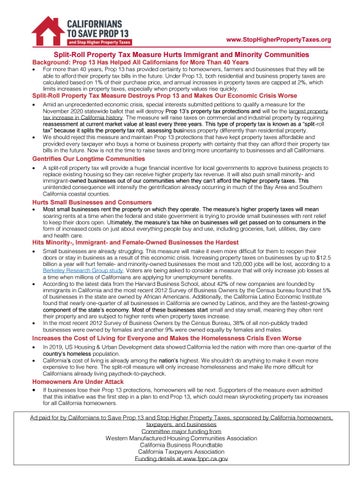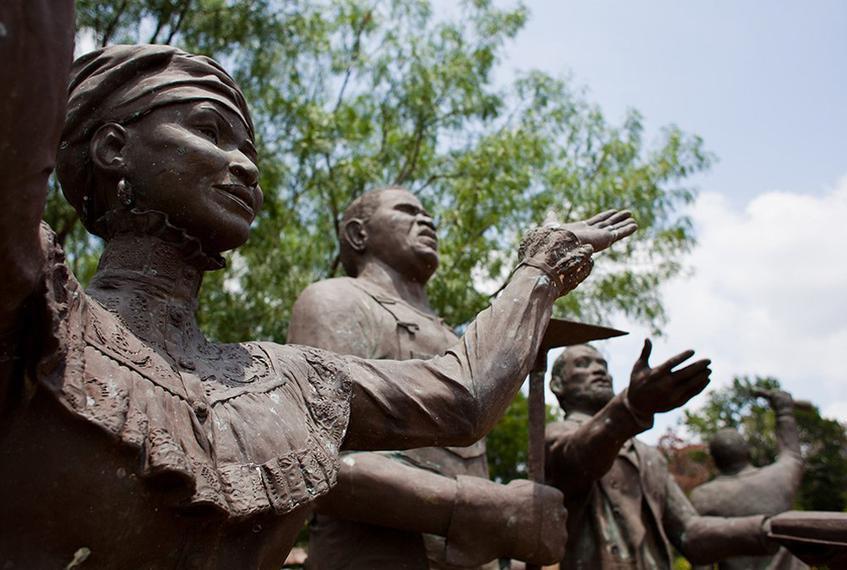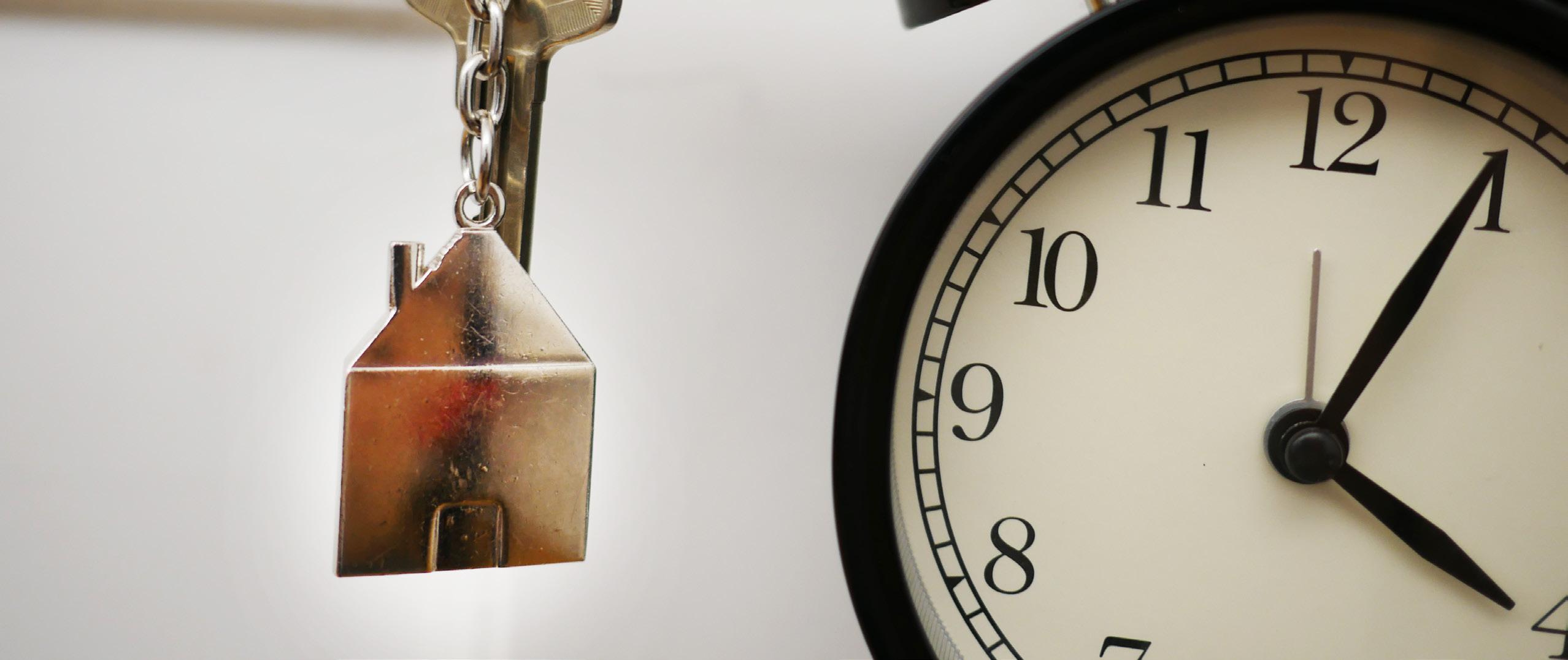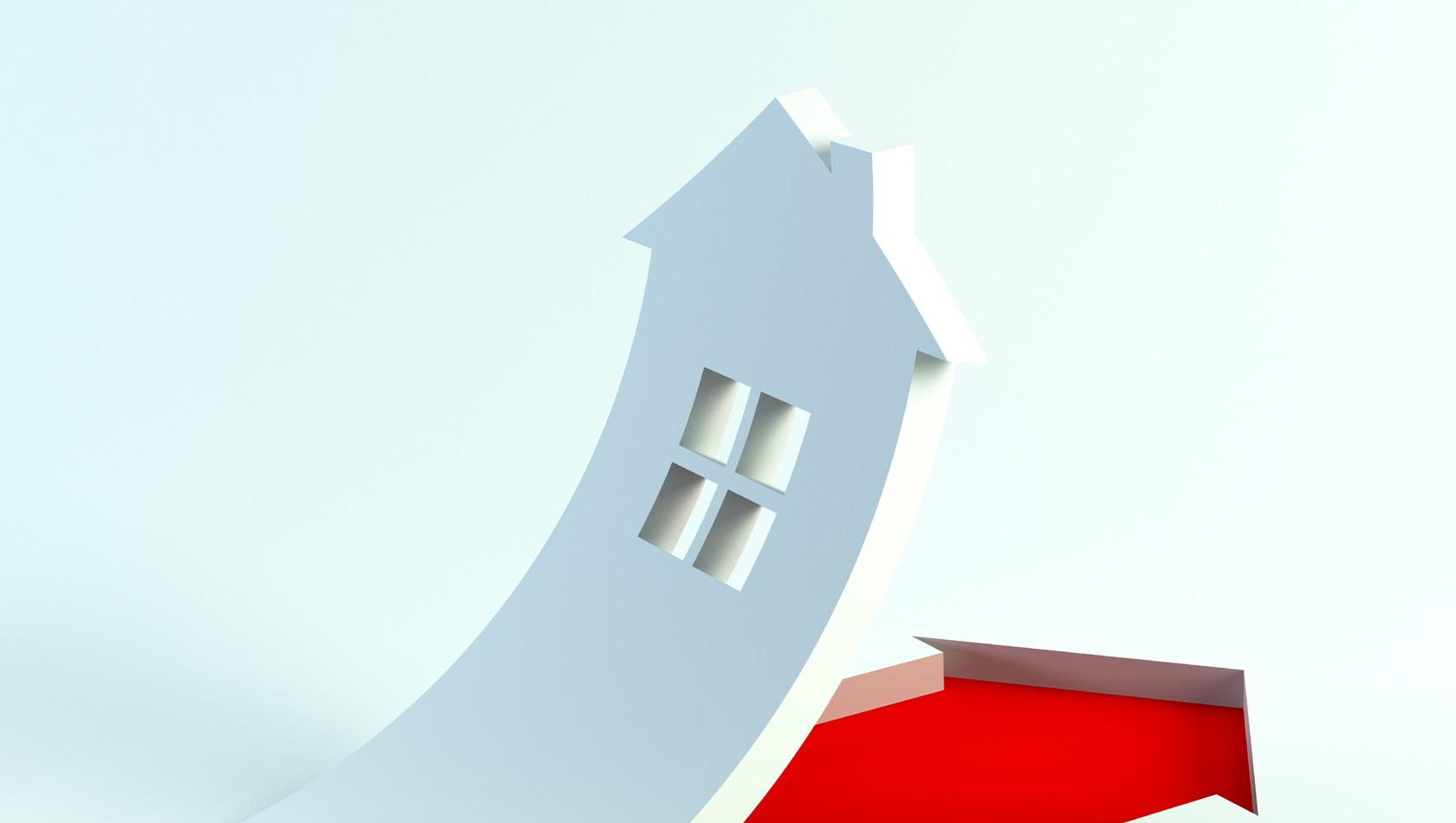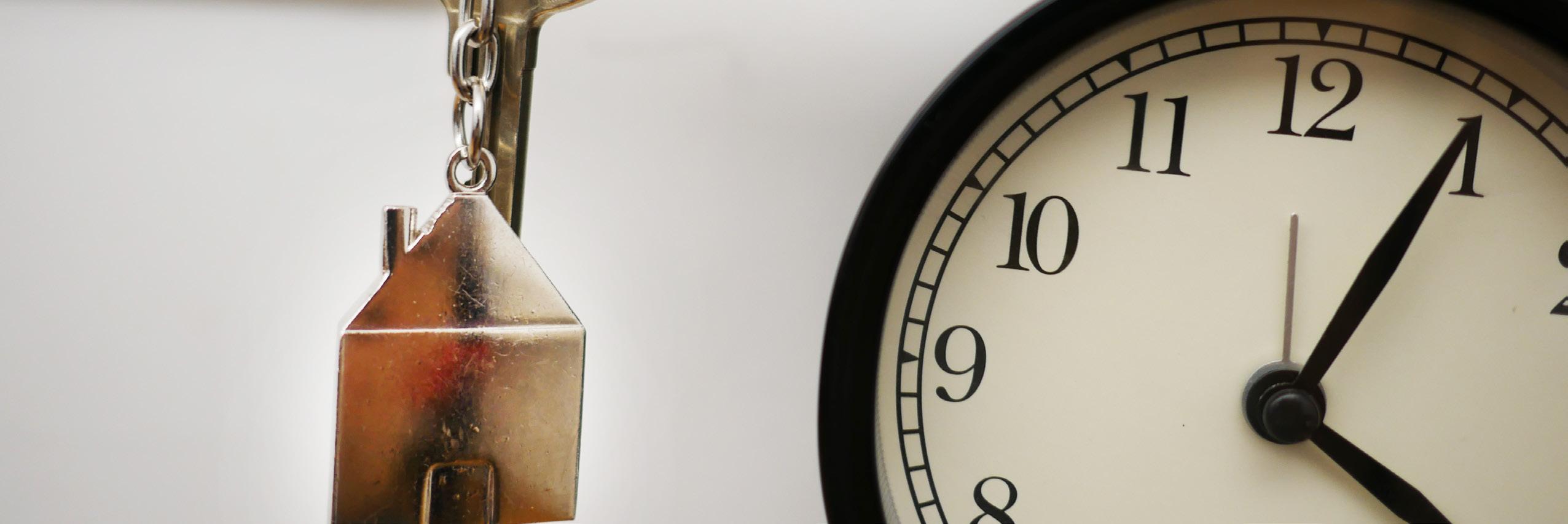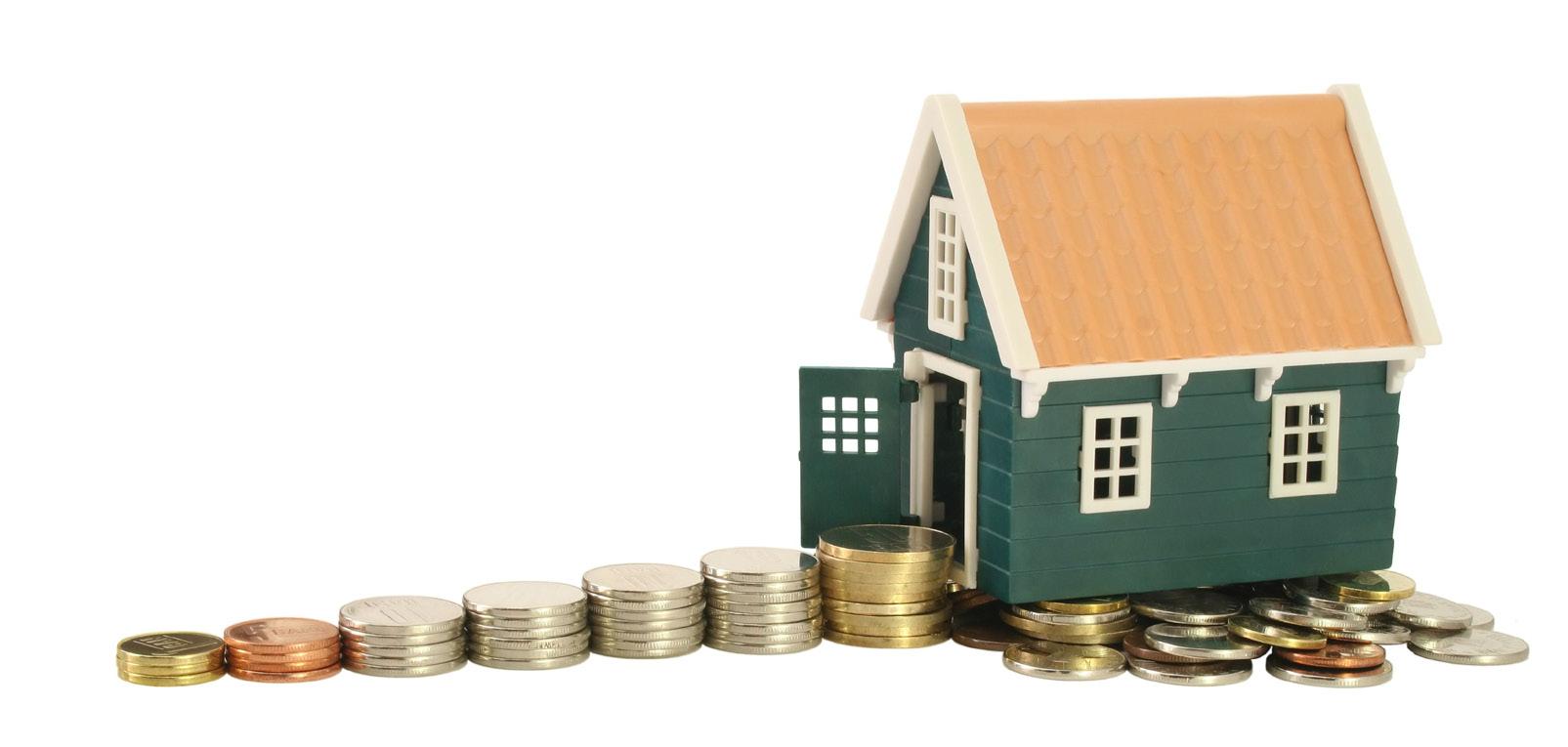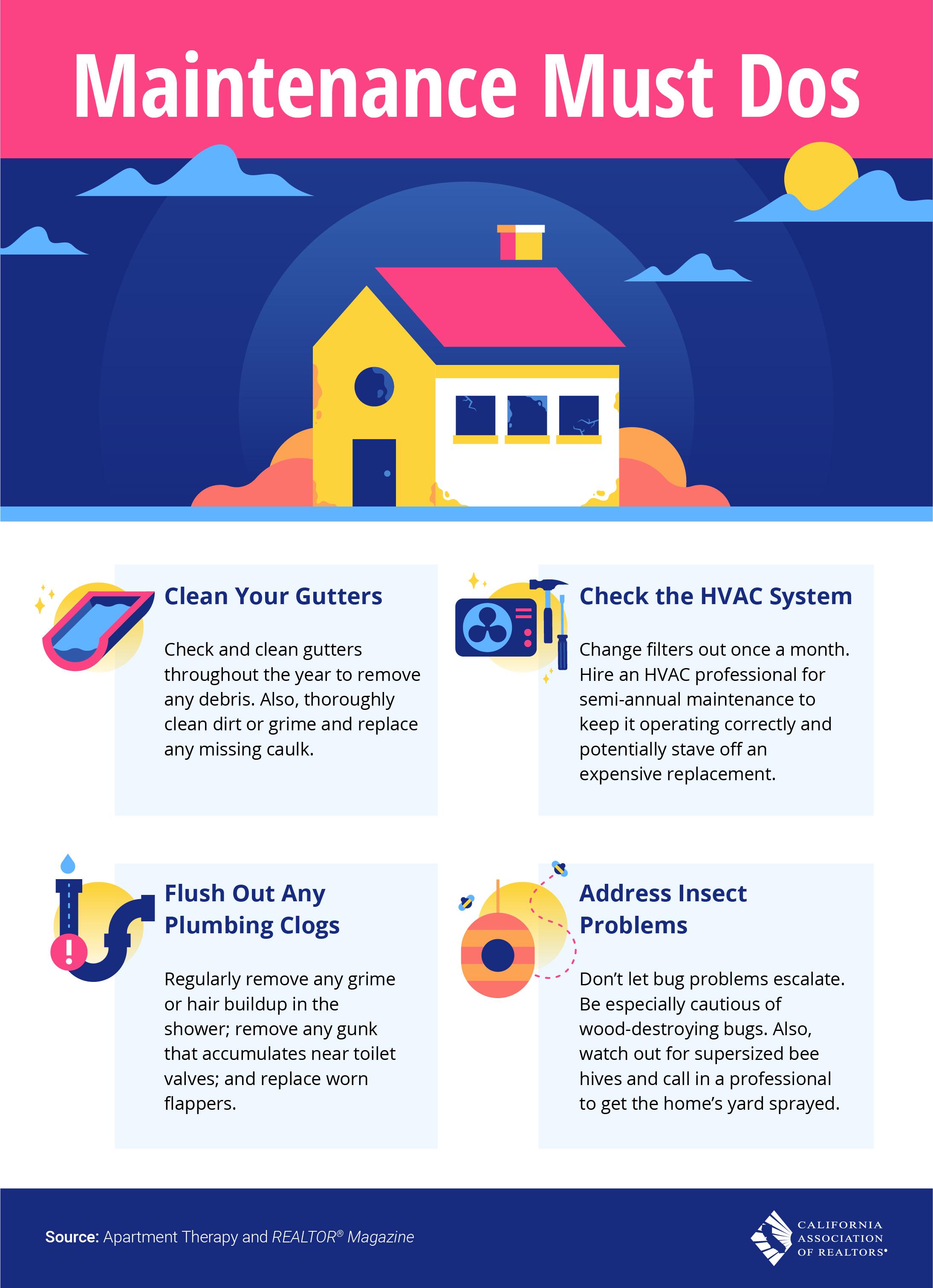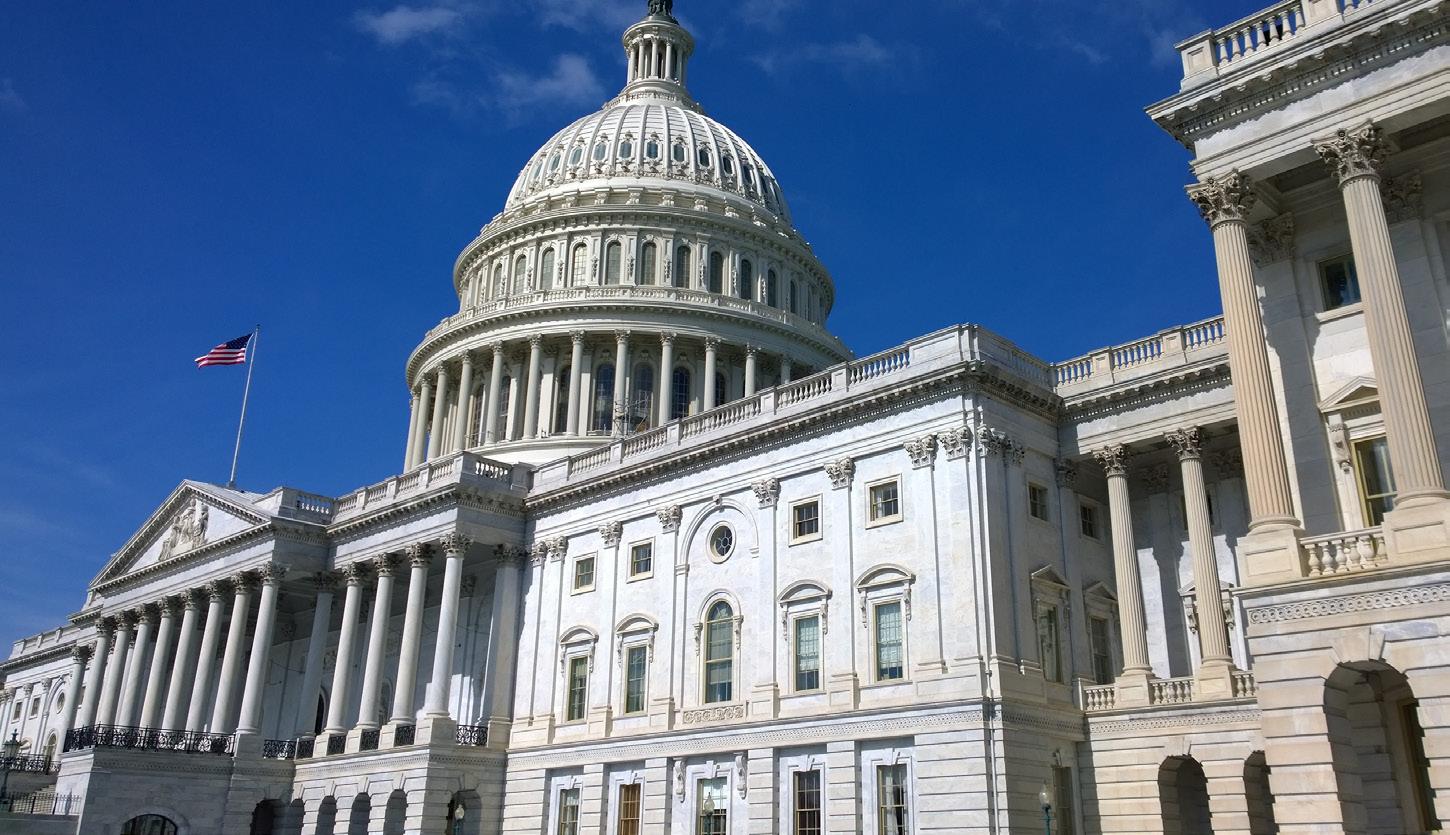www.StopHigherPropertyTaxes.org
Split-Roll Property Tax Measure Hurts Immigrant and Minority Communities
Background: Prop 13 Has Helped All Californians for More Than 40 Years •
For more than 40 years, Prop 13 has provided certainty to homeowners, farmers and businesses that they will be able to afford their property tax bills in the future. Under Prop 13, both residential and business property taxes are calculated based on 1% of their purchase price, and annual increases in property taxes are capped at 2%, which limits increases in property taxes, especially when property values rise quickly.
Split-Roll Property Tax Measure Destroys Prop 13 and Makes Our Economic Crisis Worse •
•
Amid an unprecedented economic crisis, special interests submitted petitions to qualify a measure for the November 2020 statewide ballot that will destroy Prop 13’s property tax protections and will be the largest property tax increase in California history. The measure will raise taxes on commercial and industrial property by requiring reassessment at current market value at least every three years. This type of property tax is known as a “split-roll tax” because it splits the property tax roll, assessing business property differently than residential property. We should reject this measure and maintain Prop 13 protections that have kept property taxes affordable and provided every taxpayer who buys a home or business property with certainty that they can afford their property tax bills in the future. Now is not the time to raise taxes and bring more uncertainty to businesses and all Californians.
Gentrifies Our Longtime Communities •
A split-roll property tax will provide a huge financial incentive for local governments to approve business projects to replace existing housing so they can receive higher property tax revenue. It will also push small minority- and immigrant-owned businesses out of our communities when they can’t afford the higher property taxes. This unintended consequence will intensify the gentrification already occurring in much of the Bay Area and Southern California coastal counties.
Hurts Small Businesses and Consumers •
Most small businesses rent the property on which they operate. The measure’s higher property taxes will mean soaring rents at a time when the federal and state government is trying to provide small businesses with rent relief to keep their doors open. Ultimately, the measure’s tax hike on businesses will get passed on to consumers in the form of increased costs on just about everything people buy and use, including groceries, fuel, utilities, day care and health care.
Hits Minority-, Immigrant- and Female-Owned Businesses the Hardest •
•
•
Small businesses are already struggling. This measure will make it even more difficult for them to reopen their doors or stay in business as a result of this economic crisis. Increasing property taxes on businesses by up to $12.5 billion a year will hurt female- and minority-owned businesses the most and 120,000 jobs will be lost, according to a Berkeley Research Group study. Voters are being asked to consider a measure that will only increase job losses at a time when millions of Californians are applying for unemployment benefits. According to the latest data from the Harvard Business School, about 42% of new companies are founded by immigrants in California and the most recent 2012 Survey of Business Owners by the Census bureau found that 5% of businesses in the state are owned by African Americans. Additionally, the California Latino Economic Institute found that nearly one-quarter of all businesses in California are owned by Latinos, and they are the fastest-growing component of the state’s economy. Most of these businesses start small and stay small, meaning they often rent their property and are subject to higher rents when property taxes increase. In the most recent 2012 Survey of Business Owners by the Census Bureau, 38% of all non-publicly traded businesses were owned by females and another 9% were owned equally by females and males.
Increases the Cost of Living for Everyone and Makes the Homelessness Crisis Even Worse • •
In 2019, US Housing & Urban Development data showed California led the nation with more than one-quarter of the country’s homeless population. California’s cost of living is already among the nation’s highest. We shouldn't do anything to make it even more expensive to live here. The split-roll measure will only increase homelessness and make life more difficult for Californians already living paycheck-to-paycheck.
Homeowners Are Under Attack • If businesses lose their Prop 13 protections, homeowners will be next. Supporters of the measure even admitted
that this initiative was the first step in a plan to end Prop 13, which could mean skyrocketing property tax increases for all California homeowners.
Ad paid for by Californians to Save Prop 13 and Stop Higher Property Taxes, sponsored by California homeowners, taxpayers, and businesses Committee major funding from Western Manufactured Housing Communities Association California Business Roundtable California Taxpayers Association Funding details at www.fppc.ca.gov
